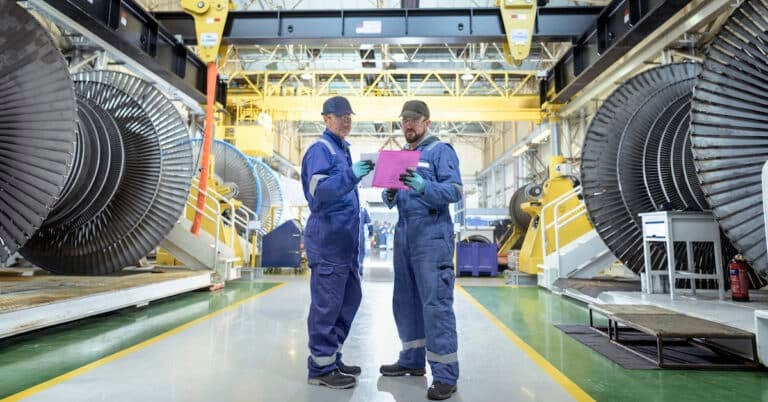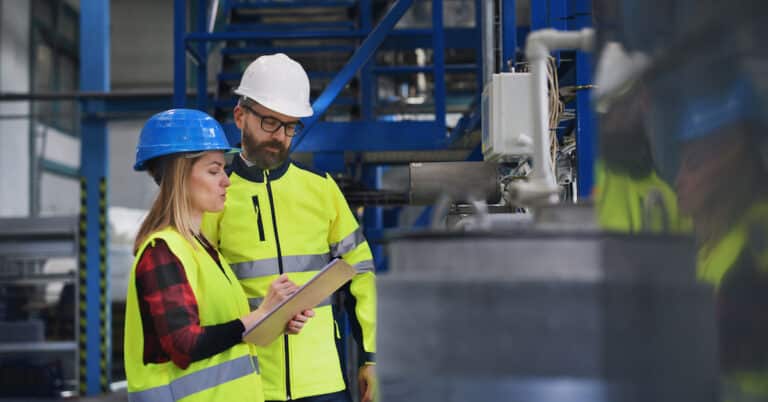Effective communication skills are essential in any workplace. Managers, supervisors, or coordinators rely on their communication skills to lead their teams. As such, team leaders must learn the best way to relay and obtain information from their members. Efficient and conducive working conditions depend on a leader’s ability to foster an open line of communication within their team. A maintenance team deals with information that must be transferred quickly and accurately. One of the non-technical yet essential tasks of a maintenance manager is maintaining an open line of communication within the maintenance team. If the maintenance manager fails to do so, the team won’t work effectively to reach its goals.
This article discusses the reasons a maintenance manager must possess excellent communication skills. Use this list as a guide in boosting your maintenance team in accomplishing its objectives.
Communication Brings the Team Together
A maintenance manager’s main task is to unite or bring the team together into achieving a common goal. This is only possible if the manager can influence team members to express their thoughts, explore their ideas, and share their opinions. This way, the manager can prevent miscommunication or misunderstanding that can divide a team.
Initiate honest communication within your team by being clear and upfront with your thoughts and intentions. For example, explain to your team how this week’s schedule and work orders were planned. And after that, ask for their questions or suggestions, and be open-minded when considering them. Chances are high that your team can provide you with effective solutions to your issues or problems.
Communication Builds Trust
A maintenance manager is responsible for building trust within the maintenance team. When members trust their manager and teammates, they are more likely to perform better, more efficiently, and with more motivation or morale. In addition, with a demanding workload and high-risk duties, maintenance workers need a team they can trust to have their back in difficult situations.
Reach out to your team members and constantly reassure them of your and your team’s support whenever needed. When faced with issues such as high stress levels, dishonesty, isolating behaviors, laziness, or resistance to change, you must learn how to properly communicate to build trust.
Communication Promotes Transparency
A maintenance manager who openly communicates with their team promotes transparency, which in turn results in efficiency and productivity. No one likes to work in an environment where they are in the dark and unaware of what’s happening. When team members know and understand the rationale behind their policies and programs, they are more likely to cooperate and support these policies.
Maintain transparency within your maintenance team by discussing program guidelines and policy SOPs (standard operating procedures) with them. You must also openly discuss any mistakes or errors and provide positive or constructive feedback if necessary. And always do this not to punish or shame them to be obedient, but to provide a learning opportunity or chance to improve.
Communication Encourages Initiative
A maintenance manager who constantly communicates and asks for his members’ input encourages initiative. Having initiative means members can think for themselves and act without waiting for someone to call the shots. A team made up of members with initiative can accomplish anything.
Encourage initiative by interacting and engaging your team members to think independently and critically. You may issue instructions for them, but allow them to be creative in solving problems and asking open-ended questions. This way, their learning is not limited, and they can be better assets to your team and company.
Communication Leads to Empathy
A maintenance manager maintaining open communication with their team members develops empathy for them. When workers feel that their manager or supervisor understands and shares their point of view, they become more cooperative and open to improvement.
Always put yourself in your team member’s shoes when issuing work orders, resolving conflicts, or dealing with maintenance issues. By showing genuine interest in your members, you can discover what makes them tick, how they react to situations, and what motivates them.

Seamless Communication Through CMMS
When managing a team, communication is fundamental. A computerized maintenance management system (CMMS) can be a valuable tool for maintaining accurate and real-time communication within your maintenance team.
With a CMMS like Redlist, the transfer of information is smooth and fast. With a mere swipe of a finger, you can update information and issue work orders for your members. You can also track and monitor their progress wherever you or your team members are. Additionally, Redlist stores all communications and reports in cloud-based storage for future reference.Learn more about CMMS and how it helps maintenance managers. Sign up for a free demo with Redlist today!


